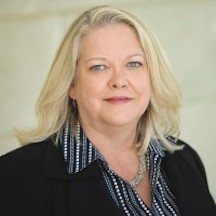"For the carriers in the room, we will remember how we were treated in this very difficult time, and we will build our relationships accordingly." Mishelle Walsh, J.R. Simplot Company
This comes at a time when AGTC successfully lobbied for the Ocean Shipping Reform Act of 2022 which will give the Federal Maritime Commission more power to regulate against unfair detention and demurrage practices that have been a focus of anger by exporters and importers.
At a panel entitled The Shipper/Forwarder Perspective attendees heard the following:
Dan Barton representing GoldRiver Orchards, a producer of walnuts, said that walnut exporters continue to face losses due to delays in being able to ship exports on ocean carriers. He cited California Walnut Board data stating: "The negative impact of reduced or discontinued service, lack of available containers at the Port of Oakland, and consistent cancellations of bookings has cost California walnut growers an estimated $700 million in the first seven months of the current crop year.
Brad Hamilton representing Seaboard said, his company is a diversified global agribusiness transportation company and a producer of pork and other protein products. The company is active in 45 countries and has revenues of $9.28 billion. Hamilton said that the supply chain disruptions at California ports had forced the company to find alternative ports to transport its exports. Seaboard is now utilizing ports on the East and Gulf Coast ports to ship product to Asia. Seaboard has also had to increase imports from Mexico. The company is also facing workforce challenges in the United States and is seeking to automate operations.
Mishelle Walsh represents J.R. Simplot Company. The company is an agribusiness producer of potatoes and other agricultural products. The company is also a cattle producer, food processor, and fertilizer manufacturer. It operates primarily in the United States, but also in Canada, Mexico, Australia, Argentina and China. Walsh worked for an ocean carrier before coming to the Simplot Company. She was critical of the way ocean carriers have treated exporters and said, “For the carriers in the room, we will remember how we were treated in this very difficult time, and we will build our relationships accordingly."

Rob Prather is the chairman of the Special Soya and Grains Alliance and said that the sanitation requirements for food are very stringent and that food is a life giving commodity that needs to be accorded a high level of respect. He noted that while one container looks the same as another: "We have to get people to understand that food is different from consumer goods."
Bill Rooney, Executive Vice President of Kuhne + Nagel, urged participants to be understanding of ocean carriers and the fact that the current windfall in profits is only temporary. Historically, he said profitability for the industry has been a struggle. He said that freight rates would probably decline but only to rates that will be about twice 2019 levels. Rooney said exporters should see improvements in service but over a gradual period of time.

